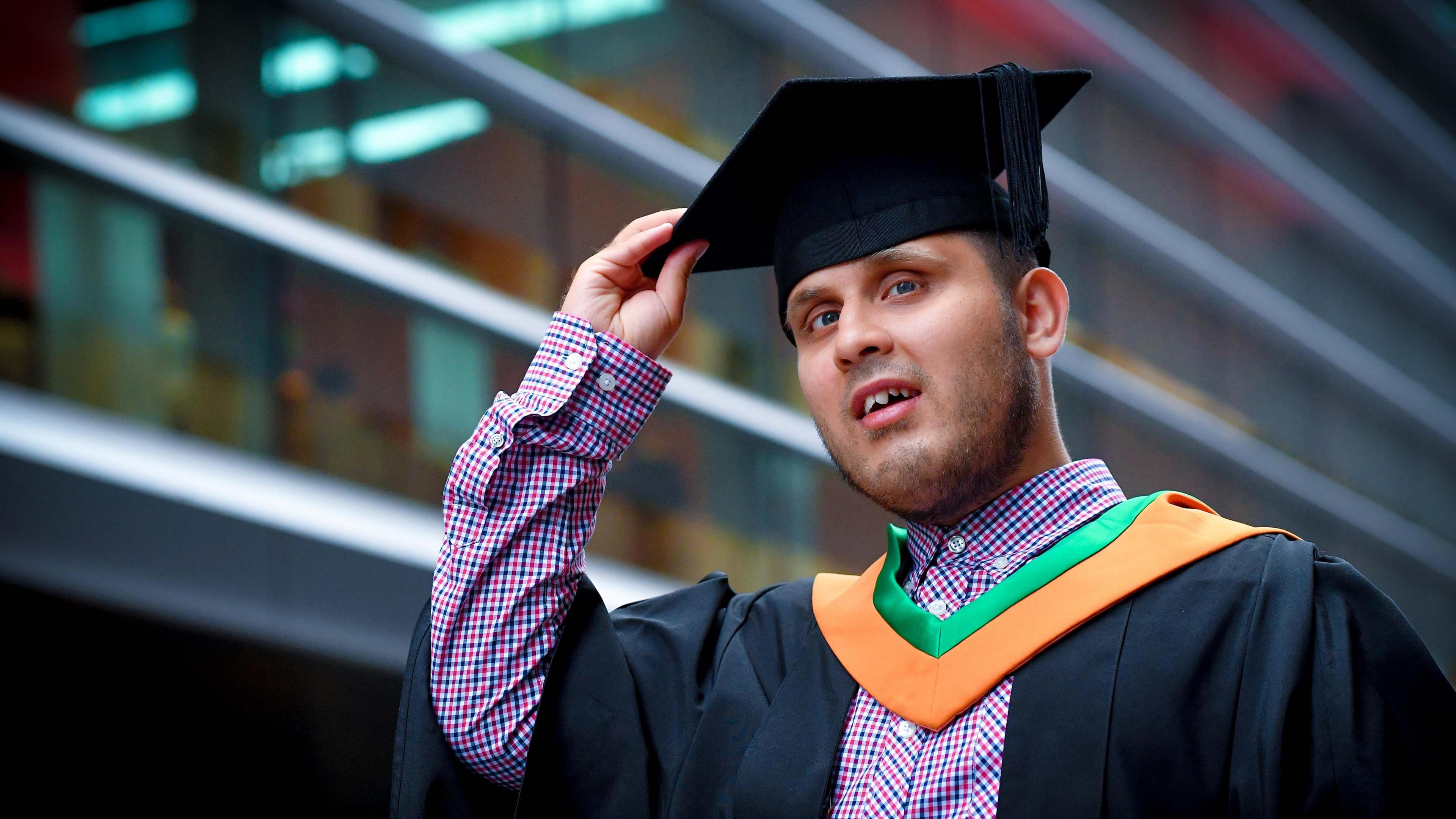Blind man told GCSE would be 'too hard' earns degree

Haseeb Jabbar graduated from Leicester's De Montfort University in August
- Published
A man who has been blind since birth says he is "proud" to have graduated with a computing degree despite being told at school that a GCSE in the subject would be "too hard" for him.
Haseeb Jabbar, who started teaching himself to code as a teenager, graduated with a degree apprenticeship in digital and technology solutions from Leicester's De Montfort University (DMU).
The 24-year-old now works as a DevOps engineer where he supports developers and helps maintain cloud environments online.
"People said I couldn't do it, but I have," he said.
Mr Jabbar, who lives in Birmingham, said he enjoyed working on computers from a young age and started teaching himself to code when he was about 13 using publicly available resources and screen readers.
"I really liked using computers and I thought that 'I want to be able to build something with it,'" he added.
However, he was told at school that a GCSE in computer science might be "too fast paced" for him and the exam board may not be able to make the required adjustments.
"Their logic was 'it's going to be too hard for you because of your disability, you might not be able to do it,'" he said.
Mr Jabbar said his mum tried to convince the school to let him study computing but her efforts were unsuccessful and he ended up studying a BTEC in IT which he said he found "easy".
'Advancements in technology'
Mr Jabbar passed the BTEC with distinction and achieved A-star grades in A-level business studies, law and psychology in 2020.
He then joined DMU on the degree apprenticeship programme in 2021 - where he was an apprentice at IBM.
Haseeb said staff at the university was "really good" at making the course accessible for him.
He said: "For example, some PowerPoints would have screenshots of code snippets or explanations.
"Those are not accessible with a screen reader because the screen reader can't read text inside pictures.
"I would email the lecturer and they would remove the text out of the screenshot or type it up into a regular text box which I could read."
Mr Jabbar graduated from the university in August with a degree apprenticeship after completing the three-and-a-half year course.
Mr Jabbar said a lot of people congratulated him and some were "surprised" he was able to graduate with a computing degree.
"It's good to explain to them that in this day and age there is a lot of support out there," he said.
Mr Jabbar added: "Some people are surprised just because they may not be familiar with all the advancements in technology that allow people with various forms of special needs to be able to achieve what they want to achieve."
He said he wanted his message to be that "everything can be done, with adjustments in place."
Mr Jabbar told the BBC in the future he wants to work on "large scale projects" that could impact millions of people.
Get in touch
Tell us which stories we should cover in Leicester
Follow BBC Leicester on Facebook, external, on X, external, or on Instagram, external. Send your story ideas to eastmidsnews@bbc.co.uk, external or via WhatsApp, external on 0808 100 2210.